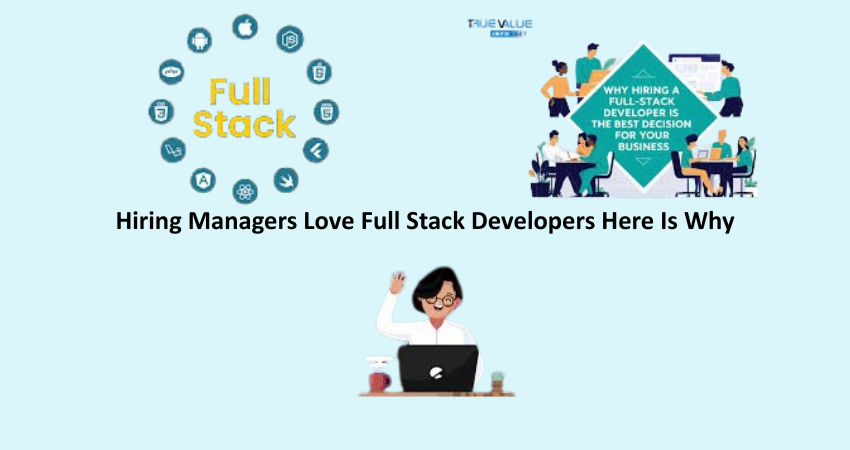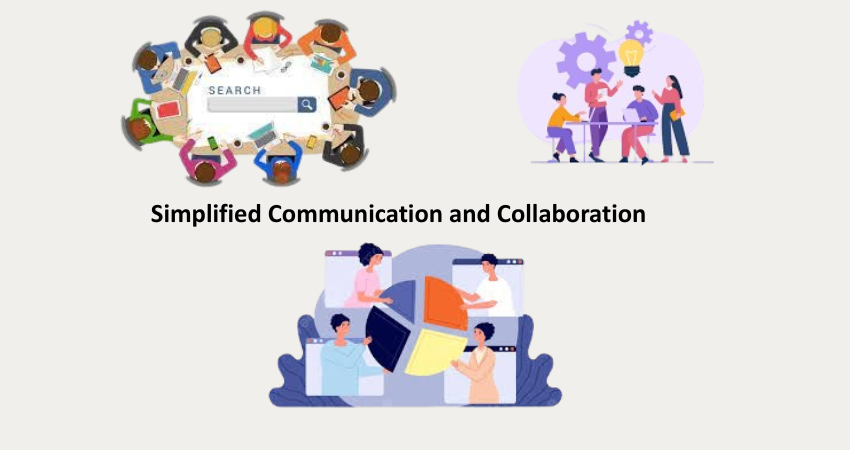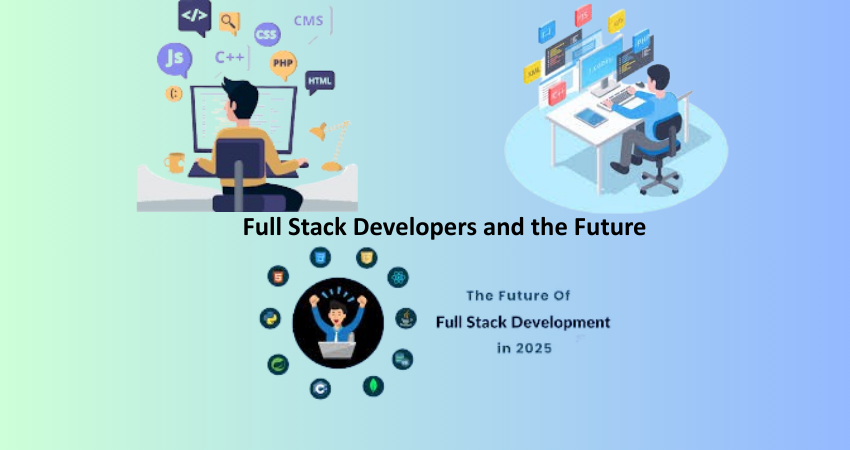
Companies, in this fast-paced digital sphere, are always looking for quicker, better, and cheaper solutions for web and software project development and maintenance. This changing demand has contributed significantly to the rise in the popularity of full-stack developers-those who can comfortably work with both ends: the front end (client-side) and backend (server-side logic) of development. Such flexible professionals are increasingly what hiring managers across industries turn to.
Full stack developers are an unrivaled option for hiring in any startup or enterprise-level software firm. They are problem solvers who understand deep design and functionality, and are able to meet and bridge technical goals along with business goals. But, truly, what is it about a full-stack developer that really has hiring managers raving? Let us unpack the elixir!
The Power of Dual Expertise
They Understand Both Front-End and Back-End Systems
Full-stack developers are unique because they really know how the entire web application works from designing beautiful interfaces using HTML, CSS, and JavaScript to running complex databases and APIs with Python, PHP, or Node.js. These professionals can work on both the client and server sides of development.
Because of this duality, full stack developers can create the entire feature completely end-to-end without needing the feature to pass through the hands of multiple team members. They understand how choices made on one side would affect processing on the other. They’re usually very good at debugging and optimizing the overall performance.
They Can See the Big Picture
When a full-stack developer is being hired, he/she is actually being hired as a system thinker. These developers know how every part of a digital product interacts with the others. This makes them great at problem-solving and thinking ahead for any impending challenges in the development process.
This expansive view is something that hiring managers appreciate because it cuts through communications and harmonizes cross-functional teams around one user experience. Full-stack developers predict bottlenecks; they recommend strategic improvements, and they lead projects with an in-depth understanding of what is required at every level.
Cost-Effectiveness and Team Efficiency
One Developer, Multiple Roles
Financially, hiring a full-stack developer makes a focus shift from hiring a separate front-end and back-end developer, thereby pinching the payroll drastically. This financial relief can be of prime importance for start-ups or small businesses working with lean budgets.
On top of salary savings, businesses start saving time and money on onboarding and managing larger teams. Therefore, fewer people mean less meeting time and faster development, leading to a more nimble development atmosphere.
Ideal for Startups and MVP Development
A startup in its early stages will usually have a full stack developer on its team most often as it hires new employees. Minimum Viable Products (MVPs), being a complete package from user authentication to interface design and server deployment, complete the definition of a full stack developer.
Being a jack-of-all-trades, an organization can push products fast to market, directly test demand, and refine quickly to live user feedback. Full stackers tend to be the savvy, on-the-ball stars sought by hiring managers to speedily validate business ideas.
Agility and Speed in Development
Faster Feature Deployment
The ability to work on the front and back ends of an application means that full-stack developers are able to reduce dependencies within the project. There will be no waiting for other developers to complete their own tasks, which allows for faster movement overall along the development cycle. This translates into much more efficient agile sprints and iteration.
For that kind of fast turnaround to hold its ground in these very competitive markets, a quick start on updates often spells the difference between a sliding user engagement. Hiring managers realize it is an advantage when the developer is capable of not just coding but shipping quality features really fast.
Flexibility to Switch Tasks on the Fly
At the same time, project requirements may change at any point in time in dynamic technological environments. A full-stack developer is pretty comfortable switching tasks-whether it requires one to fix a front-end design issue or implement a new database schema. Such flexible teamwork allows momentum to be maintained and avoids slowdowns resulting from transitions.
Hiring managers simply love such flexibility because it enables better resource allocation. Full-stack developers fill up space when gaps open, assuring that most projects do not come to a freezing stop when an individual is on vacation, ill, or overloaded.
In dynamic tech environments, project needs may change at any time. A full stack developer is rather comfortable switching between tasks-duty, whether fixing a front-end design issue or implementing a new database schema. That flexibility maintains momentum and avoids slowdowns due to transitions.
Hiring managers love that flexibility because it permits better resource allocation. Full-stack developers fill in gaps as needed, ensuring that projects remain in motion and don’t grind to a halt whenever someone takes a vacation, gets sick, or is overloaded.
Simplified Communication and Collaboration

Acting as a Bridge Between Teams
As full-stack developers come fully equipped to understand the challenges faced by both front-end designers and back-end engineers, they fend off acting as translators or mediators between departments that could otherwise miscommunicate due to technical misunderstandings.
The ability to pull people from different departments strengthens team cohesion and alignment. For hiring managers, full-stack developers are unifying forces who help avoid delays, reduce friction, and ensure features are developed in a way that serves everyone.
Enhancing Client and Stakeholder Interaction
Such developers engage usually with both technical and non-technical stakeholders to socialize well with diverse people. They explain concepts and gather feedback while converting business needs into technical ones. This makes them suitable to front-office tasks such as technical consultation, project demo, or sprint review.
They have a very holistic view; hence the stakeholders are clear about what is possible and what is not possible ‘without getting lost in jargon’.
Improved Product Consistency
Maintaining a Unified Vision
Full-stack developers are capable of managing the lifecycle of a feature from database modeling to front-end rendering. This ensures that the feature is consistent end-to-end. This unity brings about nicer and more coherent user experience.
These developers take out the “middlemen” between layers of development, thereby minimizing the risk of inconsistency regarding how a feature looks, acts, or performs. This is easy for hiring managers to see as a giant plus when it comes to delivering sleek, business-ready applications.
Better Quality Control
Because full-stack developers work on almost every level of the application stack, they’re typically in the best position to deal with bugs, performance problems, and security threats on a higher level. This means they tend to catch issues earlier—before they can snowball into serious problems.
Hiring managers love that full-stack developers will not just put a feature together; they will also enhance it, optimize it, and make it future-proof. Their eye for detail makes anything that much more stable and of higher quality.
Adaptability and Lifelong Learning
Always Up to Date with Tech Trends
The tech world’s speed is astounding. New frameworks, hijacking libraries, schemes, and best practices are constantly emerging. Full stack developers are mostly self-taught by the looks of it, always on the latest trends in more than one area of development.
Such curiosity and commitment to learning ensure they would fit in well with any company seeking to adopt modern technologies and become trendsetters. Hiring managers like members of their team to bring fresh perspectives and insights and current tools.
Skill Growth Means Business Growth
Because full stack developers explore many technologies, they often acquire wide-ranging skills over time. They may start off with very basic front-end and back-end skills but later learn a wide variety of things like DevOps, cloud computing, and containerization, plus CI/CD pipelines.Hiring managers understand that these developers will also carry increasing weight in the business as they evolve. It is the scope of the developer’s knowledge that allows them to make smarter technical decisions and do proper process improvement while also offering sound mentorship to junior team members.
Value Across Business Sizes
In Small Teams, They’re the Backbone
Small teams are often fortunate that a full-stack developer joins them: They are Engineer, Tech Lead, QA, or Product Manager even more often than this.
They allow small businesses to deliver total solutions competitively and in record time. According to start-up recruitment managers, a full stack developer is the best hire for any startup, and in case of a very few people, he can be most strategically replacing two or more specialists with a single individual without any loss of quality.
In Large Enterprises, They Fill Critical Gaps

Full stack developers have their importance in huge companies. These specialized roles are suitable for a big team, while a full stack developer usually works on cross-functional initiatives, integrations, and tools that require end-to-end awareness.
Enterprise hiring managers count on their full stack personnel for cross-discipline insights and ability to pull together systems that tend to be fragmented. Those developers frequently take on the leadership and mentorship roles for their juniors in guiding the junior developers and simplifying complex processes.
Full Stack Developers and the Future
Demand Is Still Rising
There is still a rising demand for full stack developers, and according to LinkedIn and jobites like Indeed, full stack development ranks among the most in-demand technical skills. Companies look for employees who will adapt, scale, and be maximally valuable from the first day.
Hiring managers recognize that building an application requires a future-proof skill of being able to test and deploy applications across layers. Digital transformation happens in the vast majority of businesses today, and the demand for software engineers will inevitably increase in the future.
Shaping the Next Generation of Teams
Organizational remote working options-along with ubiquitous cross-functional teams and agile work methodologies-are already becoming the blueprint of a model-modern developer, an ideal full stack developer, in which that mythical creature bounces from task to task and tool from tool to become the glue of the modern software team.
Hiring managers not only look for full stack developers in their teams; they have the habit of creating teams around such people. The magic combination of being a jack-of-all-trades, good communicate, and ace technical person surefire makes them a key ingredient in creating high-performing, robust, and futuristic development cultures.
Conclusion
Full-Stack Developer now more than just a coder who knows how to write code for both front-end and back-end applications.
Strategically they contribute to making all parts of their development less expensive, more flexible, and really high-quality products. In fact, they can view, create, and optimize across all layers of the technology, making them extremely valuable in today’s tech space. This is what full-stack developers are and has pretty much become.
From startups to the enterprise teams, hiring managers favor full stack developers for their seamless blend of depth, problem-solving ability, and communication skills. In a fast-moving world with high demands on quality and flexibility, full stack developers don’t simply reflect the current trend; they would be the very future of development.